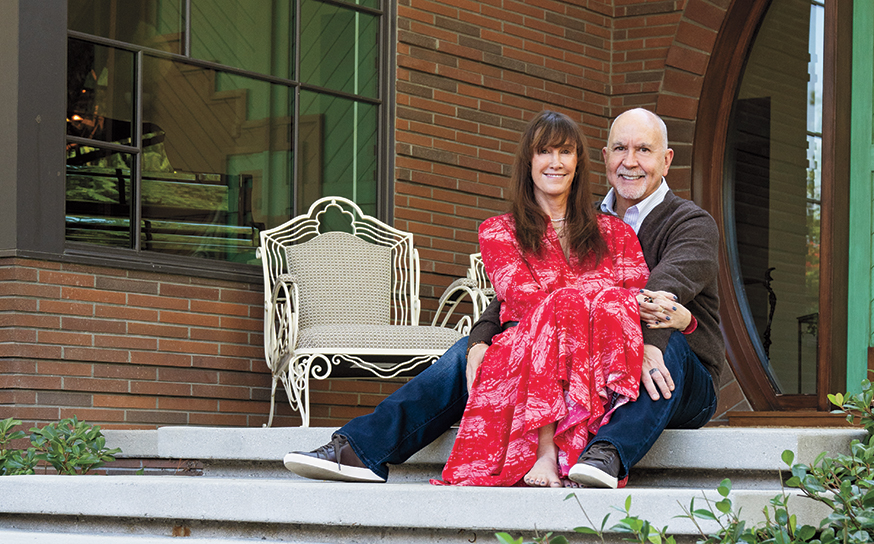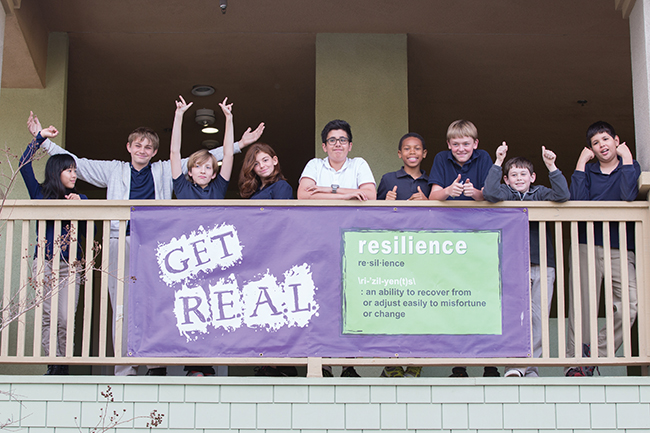
The Parent Plan
The sometimes delicate situation of stepping in to help an elderly parent care for themselves and plan for the future
-
CategoryPeople
-
Written byJudith A. Stock
Truth is, everyone is in the process of aging right now. You may already be caring for an aging parent or you’ve started thinking about what planning might be needed in the future. Now that we are all living longer, it is more important than ever to be proactive with aging parents.
Ignoring the situation, however delicate it might be, can lead to a crisis—not just for parents but for the entire family. A sudden injury or illness can necessitate an immediate change in a living situation, as a two-story home becomes unnavigable or doing simple things like getting out of bed or preparing a meal requires assistance. There often comes a time when Mom or Dad should not be driving. For most of us, these kinds of conversations with our parents are difficult.
“Everyone needs a plan, and everything needs to be planned,” says Susan Pomerantz, president and CEO of Concepts for Living in Woodland Hills, a company that assists seniors and families in finding residential placement.
The Search Is On!
Concepts for Living CEO Susan Pomerantz offers some do’s and don’ts while seeking elderly housing and care.
DO be honest and open with representatives at the various facilities.
DO be specific. The more specific you are, the better results you will get.
DO be absolutely sure that the person you are dealing with is listening and hearing you.
The representatives at facilities should be asking you questions—lots of them—and listening carefully as well.
DO carefully choose your housing representative. Get a true “feel” for how you will relate to this person throughout the journey. In some cases, have a conversation without releasing your name over the phone. Wait until the time is right and you feel confident it could be a match.
DON’T eliminate or alter issues or facts.
Some families, for fear a facility or home will deny admission, will choose not to share everything. Whether dealing with facility representatives or paid consultants, the best, most accurate placement is based on open and honest communication.
DON’T do a nonspecific internet search. Large internet companies have systems that will grab your search. There may be a pop-up asking for a name. Ignore it; otherwise you may be continually solicited by companies all over the country.
The Talk
Planning should begin with an honest discussion. Susan encourages clients to sit down with parents while they are still healthy and active. She suggests that parents put in writing exactly what their wishes are so everyone is on the same page. Documents like wills and medical directives—along with a one-sheet that has bank and other important passwords—should be easily accessible.
Similar to the dread a teenager feels having the “sex talk” with his or her parents is the reluctance to have a discussion about parent finances, placement and the need to get help. It is an awkward role reversal as children—now fully grown adults—try to take the reins. Often parents resist the change; it can be a slippery slope if not handled with aplomb.
Sometimes it makes sense to bring an expert into the discussion. “Some kids have such a hard time with having this talk with parents that they will include me.
Often the parents are more open with strangers who are perceived as the professionals,” says Susan.
When parents are transitioning into a new living situation, Susan counsels clients to have a lot of patience and understanding. The key is trying to convince the seniors to perceive the change as a new beginning.
The Move
On a quest to track down the perfect facility, check out independent living (IL) and assisted living communities (AL) and visit several (typically smaller) board and care homes. Take time to visit each facility and assess what level of care is available and whether it meets needs.
Some facilities offer several levels of care all on one campus. Seniors can begin with independent living, then transition into assisted living and, if necessary, into hospice care. Avoiding another move, generally, is a good thing.
Assess the social aspects of a facility. What activities are available? Do residents look engaged? Look around, take stock and ask yourself: Do you see Mom or Dad here?
Some placement firms offer clients the option of having a staff member accompany them on residential facility tours.

The Finances
Finding affordable housing is another factor. “Finances are key. If the senior or the family have the availability of an open budget, then it is easier to provide more choices,” Susan says. “However, even with more of a limited financial ability it can be done.”
When assessing finances, factors like Social Security, pensions and family assistance should all be taken into consideration. Veterans also may be eligible for benefit programs.
And don’t forget about Medicaid, though utilizing the benefit can be tricky. Medicaid pays for skilled nursing facilities but not for assisted living or help in the home. Typically it becomes part of the equation when a person is already in a skilled nursing facility and is running out of money.
The Doctor
It is important to recognize when it’s time to consult with a gerontologist. A geriatrician is board-certified in internal medicine and geriatric medicine and trained in caring for seniors and their medical challenges.
“I see patients that meet the whole spectrum of aging: from high-functioning 65-year-olds who are still working full-time all the way to very frail patients over 100 years old who have geriatric syndromes such as falls, memory problems and social isolation,” says Sonja Rosen, MD, a gerontologist with Cedars Sinai Medical Group. “The goals for patients at different decades and functional status are very different.”
For seniors who are frail and have multiple medical conditions, geriatricians can help patients cope with health challenges while balancing their overall goals. Sonja says, “There is no reason to leave your doctor who has cared for you for years. However, if you are older and have complicated and multiple medical problems, it helps to at least have a comprehensive geriatric assessment by a geriatrician even if you stay with your regular doctor.”
Gerontologists and geriatricians rely on a multidisciplinary team that includes physical therapists, social workers, case managers and nurses to help take care of patients. They are very connected to local communities that provide support, so they can be instrumental not just in caring for elderly patients but in helping family members craft an overall plan.











